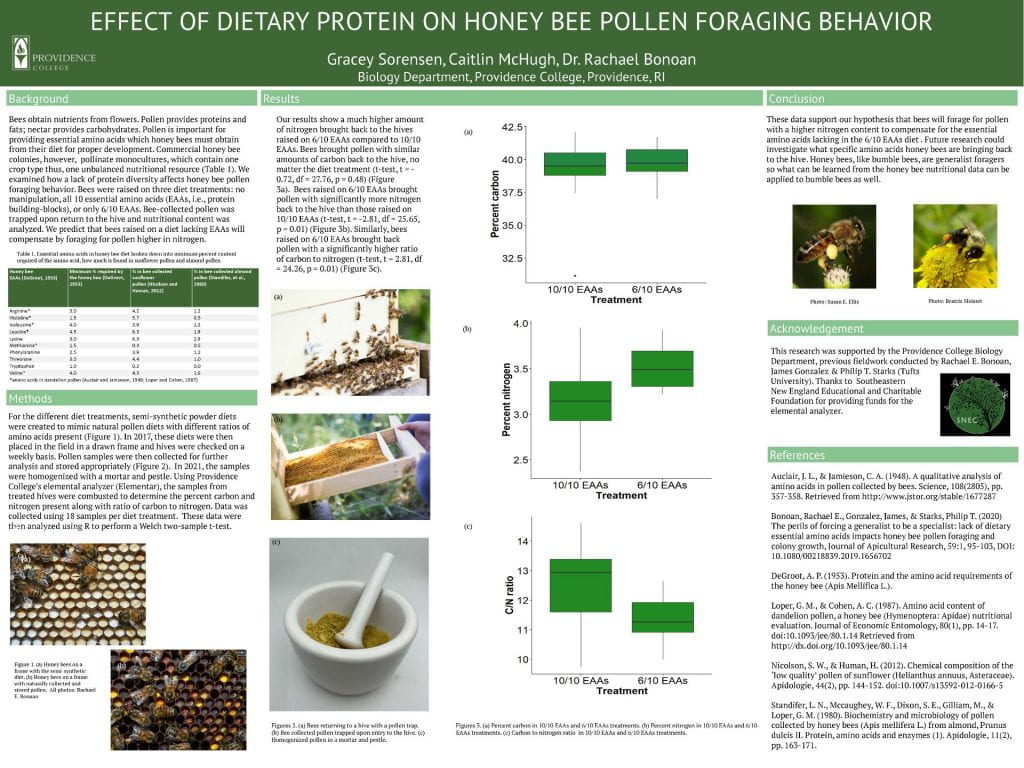Caitlin McHugh ’24 and Gracey Sorensen ’23
Effect of dietary protein on honey bee pollen foraging behavior
Caitlin McHugh ’24, Environmental Biology and Economics
Gracey Sorensen ’23, Biology
Faculty Mentor: Dr. Rachael Bonoan, Biology
Bees obtain nutrients from flowers. Pollen provides proteins and fats; nectar provides carbohydrates. Commercial honey bee colonies pollinate monocultures, which contain one crop type thus, one unbalanced nutritional resource. We examined how a lack of protein diversity affects honey bee pollen foraging behavior. Bees were raised on three diet treatments: no manipulation, all 10 essential amino acids (EAAs, i.e., protein building-blocks), or only 6/10 EAAs. Bee-collected pollen was trapped upon return to the hive and nutritional content was analyzed. We predict that bees raised on a diet lacking EAAs will compensate by foraging for pollen higher in nitrogen.
Poster Presentation: Tuesday, April 26 12 – 2 p.m.






